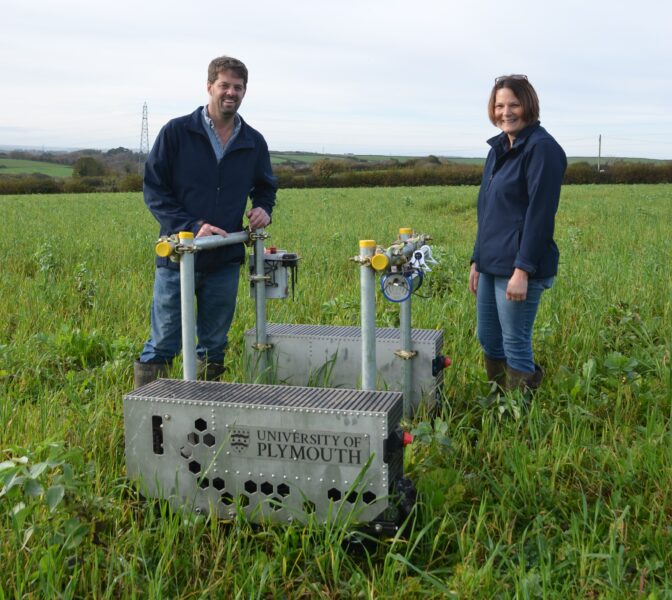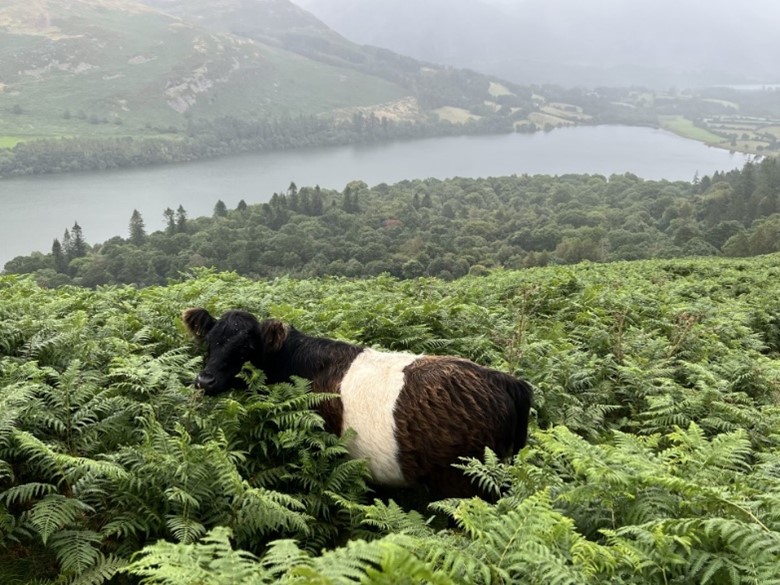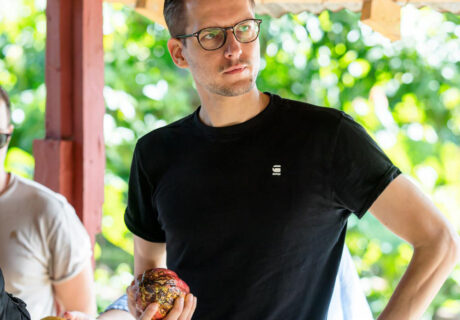Farmers across the UK are embracing innovative, nature-friendly solutions in an aim to boost biodiversity and productivity while reducing reliance on chemicals and heavy machinery.
Replacing chemicals with livestock for bracken management
In a new field lab with Innovative Farmers, farmers across eight farms in Cumbria, Lancashire, and Yorkshire are using cattle, pigs, and ponies to manage bracken infestations without chemicals. Bracken, an invasive species, threatens grazing land, public access, and biodiversity, including habitats critical to the endangered High Brown Fritillary butterfly.
Livestock are being guided into bracken-dominated areas using salt licks and hay strategically placed to encourage trampling. Cattle crush bracken with their body weight, while pigs dig out its starch-rich rhizomes, weakening regrowth and allowing other plant species to thrive.
Triallist Katharine Pinfold, a cattle farmer at Hudson Place Farm, Cumbria, said: “We have a substantial area of bracken on our fellside which limits the grazing available for livestock as well as general biodiversity. Our farming system is very low input and therefore using our Belted Galloway cattle as a means of controlling the bracken seems to us an obvious nature-friendly solution.
The trial, supported by the James Hutton Institute, balances bracken control with maintaining habitats that sustain plants like dog violets, a vital food source for fritillary butterfly caterpillars. Soil health is also monitored, with carbon and nitrogen levels tested, offering insights into the long-term impact of livestock-led bracken management.
Innovative Farmers Manager Rebecca Swinn said: “We’re excited to see farmers take the lead on this research. Farmers urgently need more ways of managing bracken – this could be a huge opportunity. We hope others follow this trial and are inspired to try these nature-friendly methods.”
Robots revolutionising soil and biodiversity management in Cornwall

Meanwhile, in Cornwall, technology is playing a pivotal role in improving soil health and reducing erosion. Working alongside a group of farmers across Cornwall, with Innovative Farmers and Farm Net Zeroo, Malcolm Barrett is testing “strip till” methods to plant maize with minimal soil disturbance. These methods address challenges linked to heavy ploughing, such as soil compaction and water runoff, which can degrade land and pollute rivers.
Barrett’s trials have shown significant improvements, including reduced flooding and an increase in soil-dwelling organisms like earthworms. Advanced soil sensors, developed by the University of Plymouth, further enhance these efforts by providing instant, high-resolution data on soil organic matter and moisture. Mounted on robotic platforms, these sensors collect thousands of data points across a field, enabling farmers to make precise, informed decisions.
“We’re learning more about what the soil can do for us, and what we can do for the soil. It’s helping everyone by helping the environment and we’re getting huge benefits on our farm too,” said study farmer, Malcolm Barrett. “If we can understand our soil and our crops more, we can farm smarter by targeting our approach. Having thousands of data points from the robotic sensors helps to build a whole picture – then we can see if there’s certain areas that need attention and single out management practices that work.”
The university’s research also extends to using robotic dogs equipped with AI tools to analyse biodiversity in hedgerows and hard-to-reach areas, paving the way for even broader applications in agriculture.
For updates and more information on the bracken trial, visit the Innovative Farmers website where results from the field lab will be available open source.





